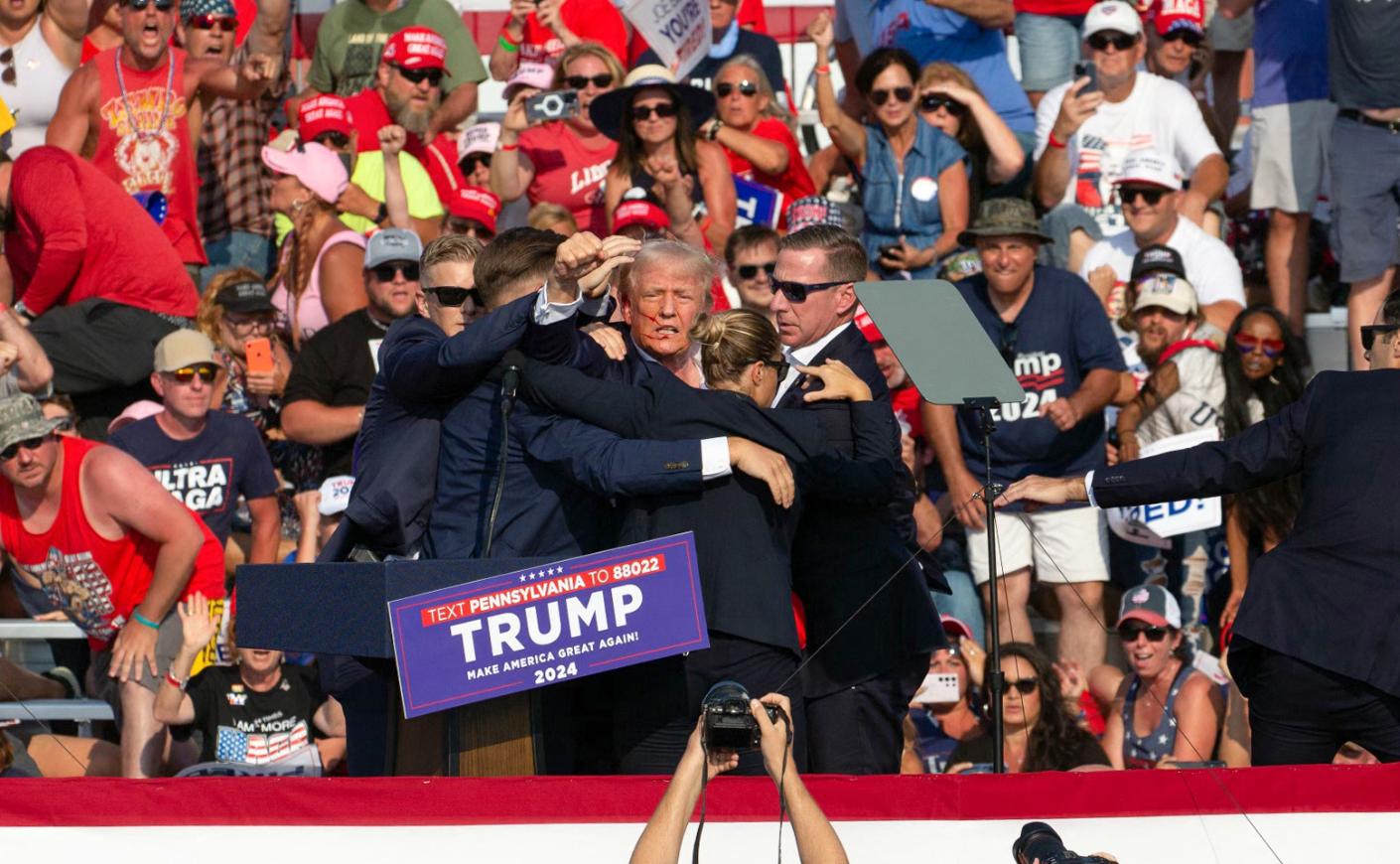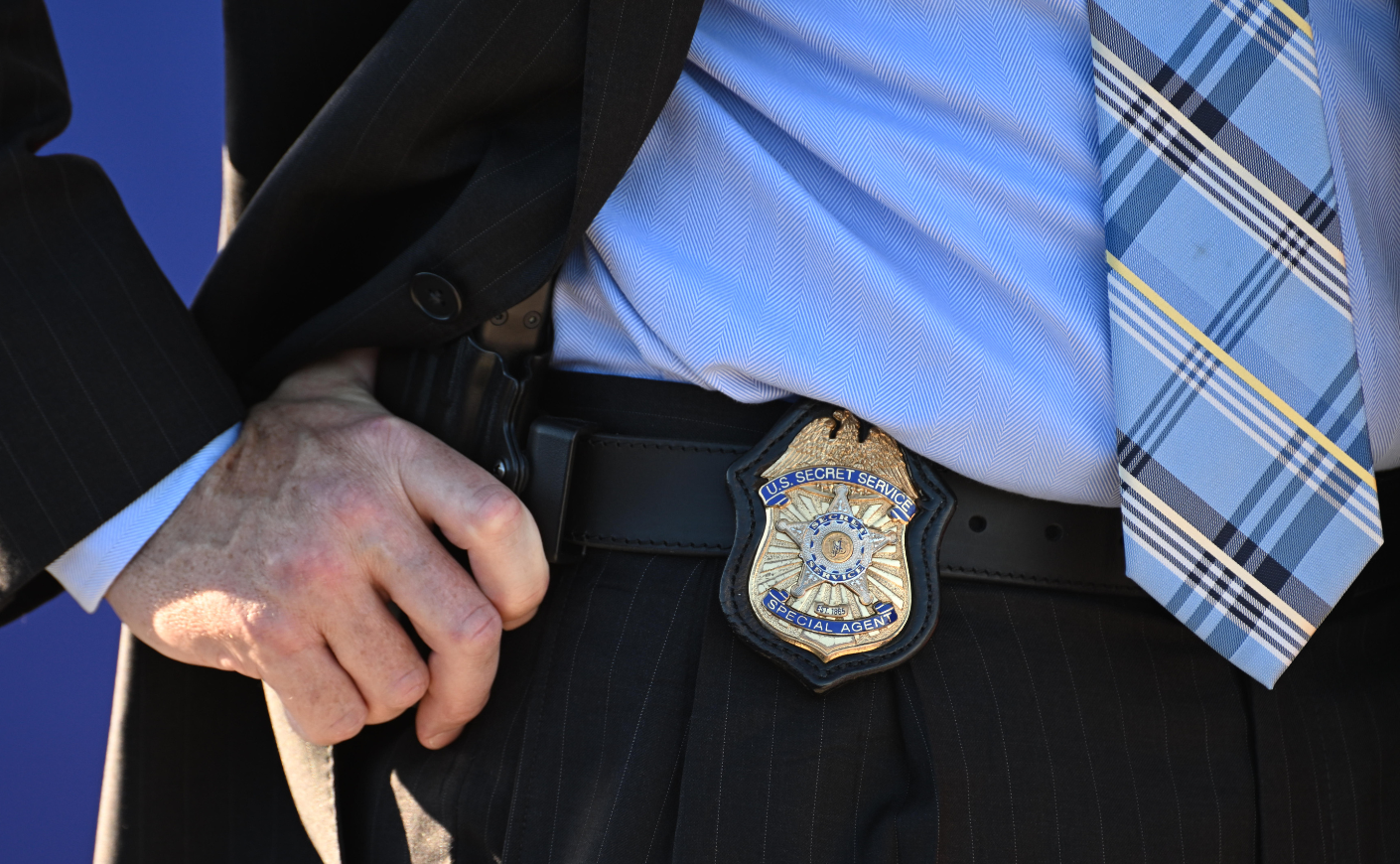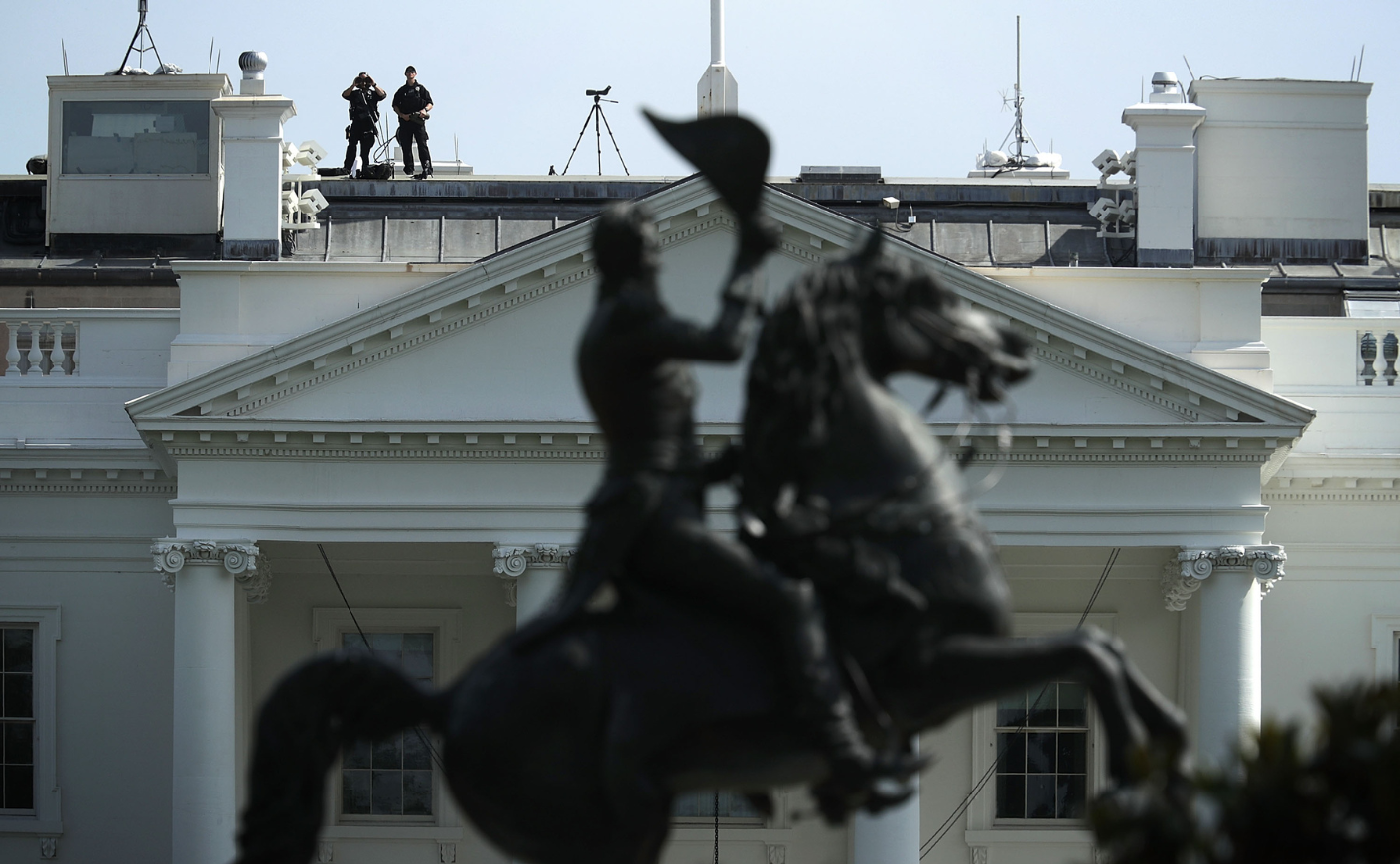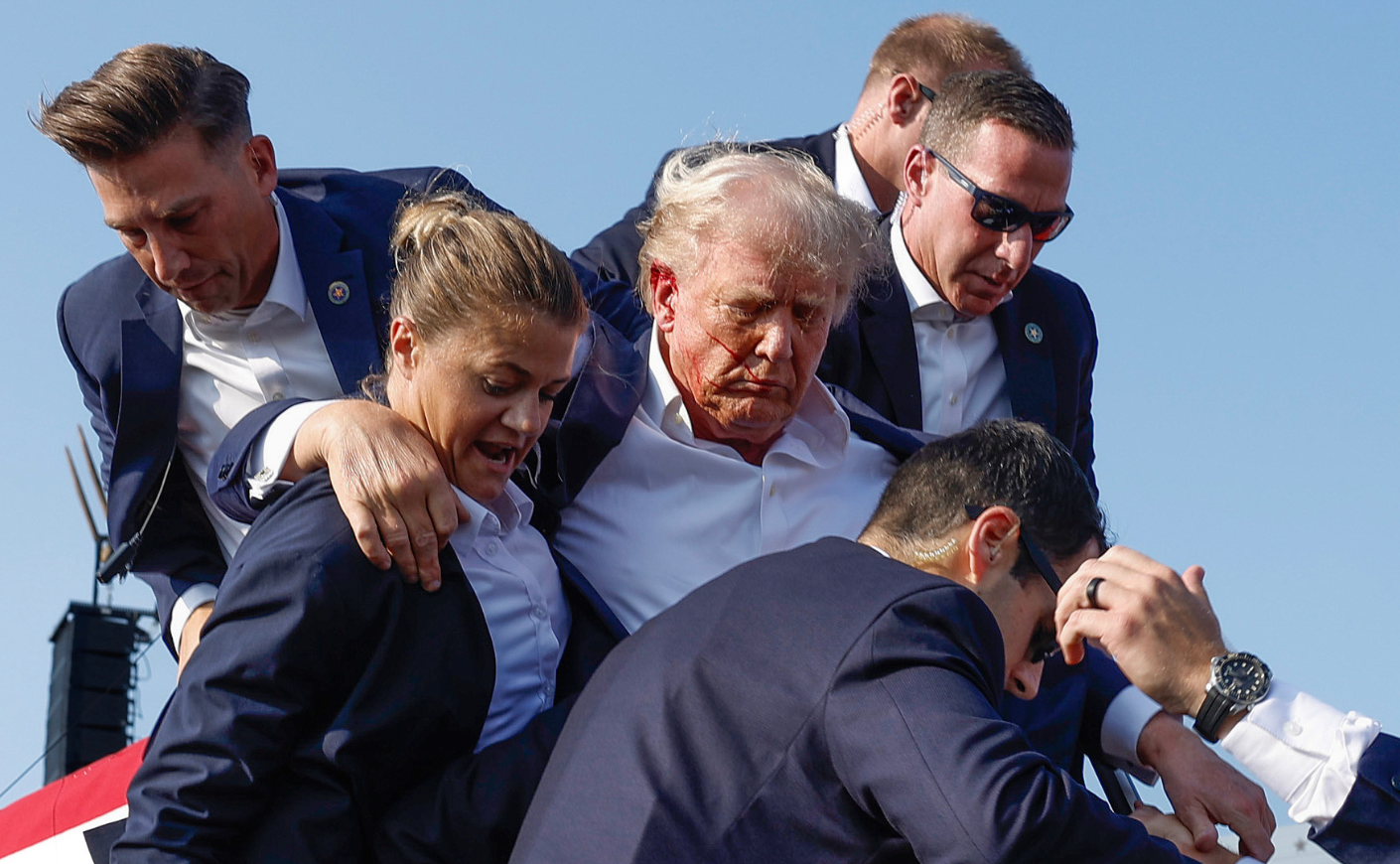As soon as it was confirmed that Donald Trump was safe after he was shot at a rally this weekend in Pennsylvania, the nation's eyes turned immediately to the institution that was meant to prevent something like this from ever happening: the Secret Service.
With serious questions being raised about how the event was secured and whether the Secret Service needs significant changes in its protocols, we called up Cory Allen, who spent years at the agency himself. In 2016, he rotated between Donald Trump and Hillary Clinton's campaigns to provide protective intelligence, then was the lead agent on Trump's inauguration gala at Union Station in Washington, D.C. As that election season wound down, he was reassigned to protect the Obamas in their post-presidential life.
Allen, who left the Secret Service five years ago, first heard about the attack on Trump during a day at the beach — his first outing with his brand-new baby. His phone "started blowing up" with messages from former colleagues, and once he got home, he "started pulling up video and trying to listen attentively" to count the number of gunshots and analyze the scene as best he could. Below, he discusses the "lapse in the security plan," explains what Secret Service is responsible for at a rally like this, and shares personal stories of safeguarding the most powerful people on the planet.
Katie Couric Media: A piece in The Wall Street Journal described this assassination attempt on Trump as "the Secret Service's most stunning failure in decades." Do you agree with that?
Cory Allen: There was certainly a lapse in the security plan. It's the first time in 43 years since something like this has happened, and it was shocking and appalling to watch for multiple reasons, including seeing my former coworkers having to go into the situation and respond. And unfortunately there's the tragedy of a civilian life lost and others injured. So yes, it was not a great day, but they'll learn and grow from it as these investigations unfold and the info is released to the public.
As you watched the video of the shooting, did you have the immediate feeling that something went very wrong with the response?
Something definitely went wrong, with the fact that somebody was able to gain access to that area and fire off rounds, injuring the former president and civilians. So, of course, something was immediately wrong. They train every day, and they're highly trained to set up these protective sites days and weeks in advance to mitigate these risks. So the fact that there was a firearm present was the first huge red flag that something was amiss.
So even if no shots had been fired — if it was "only" that a gun was present in the vicinity of the former president — that would be a huge lapse in itself.
If there's potential for injury to somebody, the Secret Service is responsible for the safety and security of not only the protectee, but everybody who's in attendance. Everyone goes through magnetometers, and the only people there who have weapons are law enforcement.

In this case, the shooter wasn't actually inside the rally. He was on the roof of a nearby building. Is that still part of the area Secret Service is responsible for securing?
The security footprint is weighed by the known threats to the venue at the time. I'm actually from western Pennsylvania, so I know the area. It's the Appalachian Mountains, and a lot of people have a lot of guns. So the terrain is tough, it's outside, and the security footprint can only be so big because of assets, and that's heavily reliant on money. If the Secret Service doesn't have enough personnel or equipment to spread that footprint further, then they become reliant on state and local officers, because there's only so many agents. So they start delegating some of that [to local teams].
I don't speak for the Secret Service, but that's where the breakdown appears to be. There was a misunderstanding with citizens alerting that there was this guy trying to gain access to a roof, but whether there were radio issues or what, we don't know. It's too early, and I certainly don't want to speculate. But there was a drop, and ultimately the Secret Service is responsible for mitigating the line of sight from rooftops everywhere in the area.
What are agents trained to do in terms of receiving information from average citizens who are nearby?
You've got to pay attention. Just like a police officer on the street gets a tip from somebody that something suspicious is going on, they've got to check it out. If you don't, this can be the end result. You can't miss any of those flags because you never know which ones are genuinely harmful.
And sometimes, things just happen. For example, I was working in Miami when President Obama was coming in on Air Force One, and we had a downpour come through the airport. It soaked me all the way through, my radio went inoperable, and therefore I had no radio communications at that critical time when President Obama was landing, getting into the motorcade, and leaving the airport. We don't know what happened in Pennsylvania, but that's one example of how quickly things can go awry.

The Guardian spoke with a former agent who said this incident calls for "a massive realignment" within the Secret Service. Do you agree?
It's been five years since I left the agency. I have friends who still work there, but I don't know their current [structure and protocols], so I'm not one to say what the Secret Service should do because I don't know best. I leave that to to the multiple investigations from the Department of Homeland Security, the Office of the Inspector General, the FBI, and Secret Service internal affairs. Once all that information is combed through and released, they can make that call.
If these investigations do determine that changes are necessary, how nimble is the Secret Service as an organization in being able to quickly implement changes?
They are very nimble. Agents work nights, weekends, holidays, 16-hour shifts. They get curveballs constantly, and I would argue the stresses are unlike any other job in the world. They're incredibly nimble at pivoting and changing and adapting. They have to be — the threats continue to change each and every day.
So based on what you know about the Secret Service, you trust their ability to address whatever an investigation may find about what needs to be different?
Without question.
Luckily, you never had to deal with a threat as dramatic as this one during your time as an agent. But what can you tell us about the human experience of reacting to something sudden and shocking in the field?
Your subjectiveness is out the window. You just react. It's what you've been trained to do. It's what you have to do. It's what you're expected to do.
In 2016, there was a shooting on the White House grounds. I was 50 yards away. I heard the yells: "Drop the gun!" I heard gunshots. I couldn't visibly see it, but I heard it. We were waiting on then-Vice President Biden to come out of the West Wing. I instinctually told my partner, "I gotta go." I jumped out of the car, grabbed my bag, and headed toward the commotion, where the shots were fired. It's this gut reaction that's hard to articulate. Even if it's to your own peril, it doesn't matter. There's something going on.

You were the lead agent at Donald Trump's inauguration ball in 2017. He came into office during a dramatic moment of uncertainty and, in many cases, fear among those who didn't vote for him. What do you remember about the security concerns around that event?
I had the privilege of that being an NSSE — a National Security Special Event. I had unlimited resources, more or less, for security measures. So when I was building out Union Station for the inaugural ball, I had what I needed to mitigate the risks.
Following Trump on the campaign trail in 2016 and knowing how the rallies went, just seeing the passion that his supporters had, that amps things up and puts us on our toes. But you could argue it also made us better at doing our jobs, because we hadn't really encountered that a whole lot. Seeing the mentality of these rallies, you're like, "Wow, this is unlike what I've seen before."
Based on all your law enforcement experience, do you think we're facing an increased threat of violence through the rest of this presidential campaign?
I hope not. But, of course, we know gun violence has plagued the U.S. for so long, even when there's children mowed down in Sandy Hook or in Texas, and nothing is being done to address these problems. It's also incumbent on all of us to tone down the rhetoric, online and in person. So many people have lost the ability to communicate on a humanistic level and get out of this "us vs. them" mentality, and that is hindering our ability to connect.
Do you have any advice for citizens who will be attending a rally, for either Trump or Biden, as the campaigns continue?
I know it sounds cliché, but if you see something, say something. If something makes you second-guess, if it makes the hairs on the back of your neck stand up because it isn't right, then report it. There will be security personnel all over the place — state, local, private security. If you see someone wandering around, coming and going, looking for ways to circumvent security, pull someone aside and call it to their attention.









